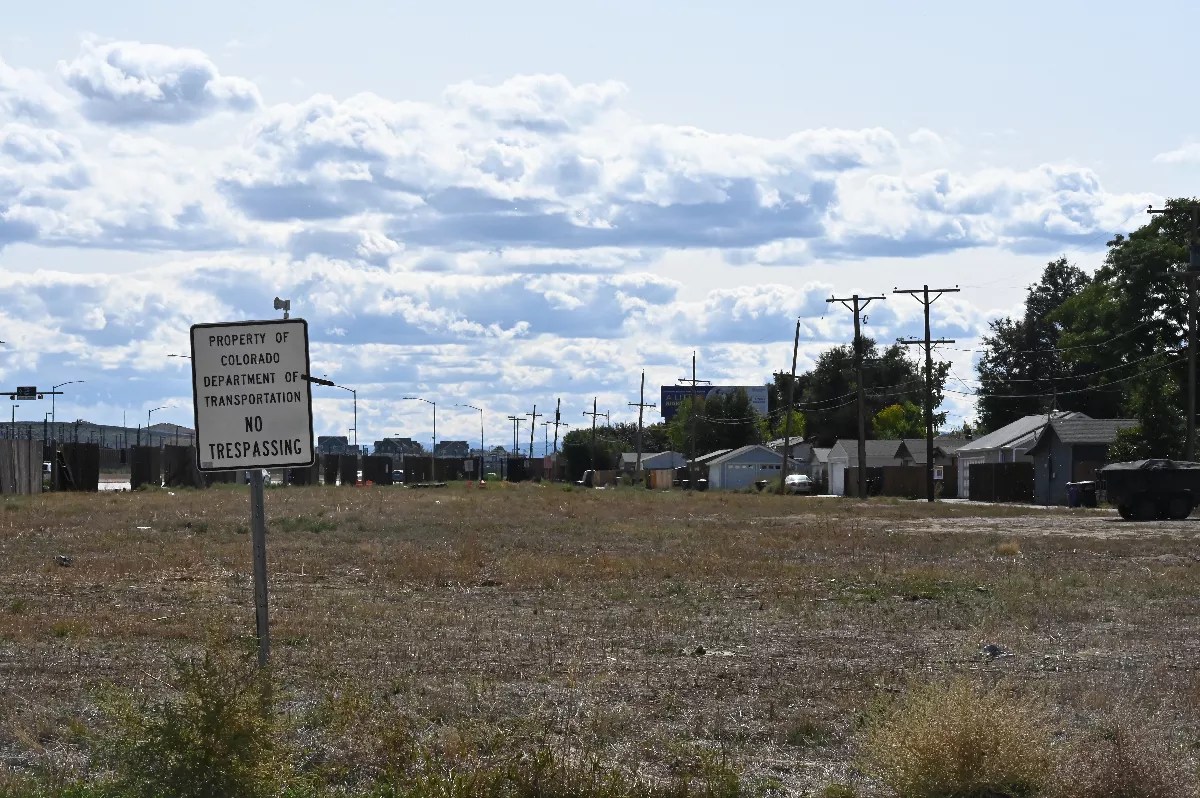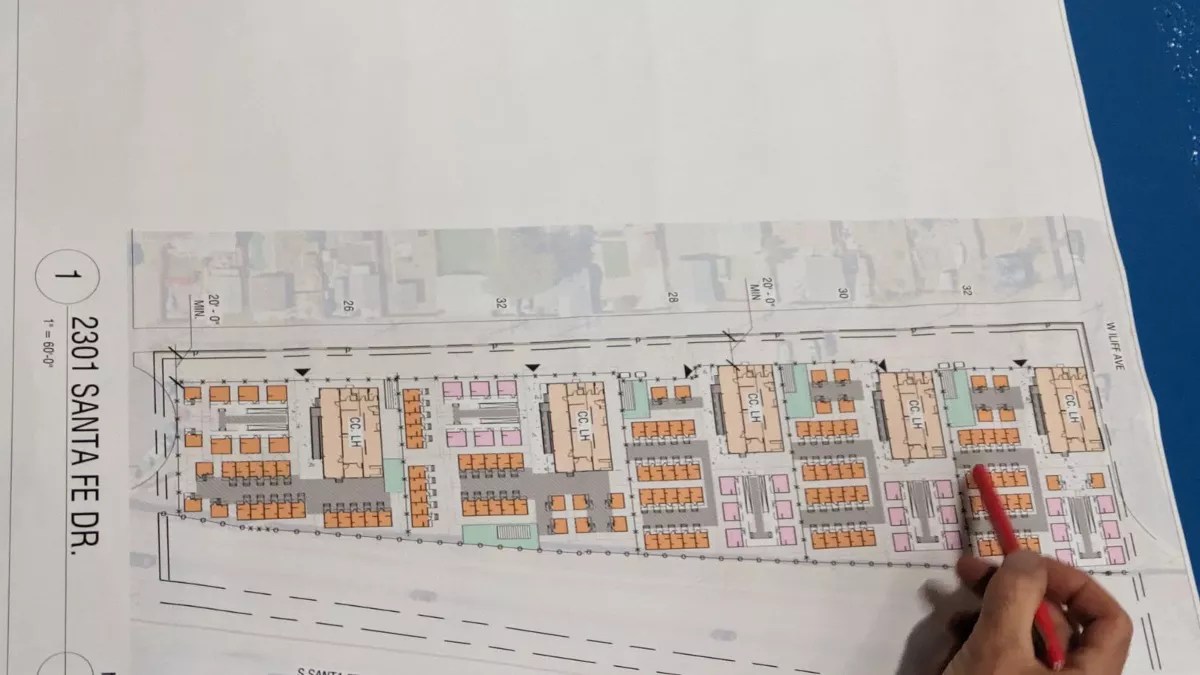
Bennito L. Kelty

Audio By Carbonatix
Back in 1988, Overland Park residents began complaining that the S.W. Shattuck Chemical Company had dumped hazardous material nearby. Among those residents were Helene Orr and Jack Unruh, who fought to have the Environmental Protection Agency declare the contaminated areas of their neighborhood a Superfund site, which it was in 1991.
In 2001, Shattuck was ordered to pay more than $7.2 million to offset the cost of cleaning up the Superfund site. The federal government, the State of Colorado and the City of Denver have since cleaned up and remediated the contaminated areas, including the banks along the part of the South Platte River that runs through Overland.
“Helene and I go way back,” says Unruh, who’s lived in the area since 1980. “Helene and I, we’re familiar adversaries. We don’t always agree on everything.”
“I have known Jack a very long time and consider him a friend,” adds Orr, who moved into the neighborhood in 1984. “What I will also say is that we differ in how we present publicly.”
What they’ve differed over recently is how the neighborhood should handle Mayor Mike Johnston‘s plans to put a micro-community at 2301 South Santa Fe Drive, on the same chunk of land that Unruh and Orr fought to clean up almost forty years ago.
The Overland micro-community is a key part of Johnston’s House1000 Initiative to move 1,000 people off the streets and into transitional housing by the end of 2023.
“With 78 neighborhoods in Denver, our share of 1,000 is thirteen, and they’re bringing in well over that,” Unruh says. “Bring them on. We’re happy.”
But while Unruh has been enthusiastic about the micro-community, Orr has demanded compromises from the city.
“We are keenly aware of the homeless crisis in this city and have expressed our willingness to shoulder our fair share of the load,” Orr recently wrote in an email to Cole Chandler, the mayor’s senior adviser on homelessness resolution.
“Cramming 120 micro-units into this tiny quadrant of Overland, outnumbering the existing 111 homes, is not a fair share.”
On December 4, Denver City Council approved a $2.2 million contract for the Colorado Village Collaborative – a nonprofit founded by Chandler – to run the Overland micro-community; the contract runs through 2024.
Unruh is currently co-president of the Overland Park Neighborhood Association, which has about ninety members. Orr is the president of Neighbors of Overland North, which has about sixty members.
“I just think NOON and OPNA take pretty different approaches to controversial issues in the neighborhood,” Orr says. “Whatever my personal views are, it’s my responsibility to reflect the views of the majority of neighbors. NOON met on the issue, and neighbors wanted to take a position. We voted, and the majority voted to oppose.”
“We’ve gotten into that situation because the scale that was proposed and the staffing that was proposed and the embedment of this site in a residential family neighborhood were negatives,” Unruh says of NOON’s position. “But we support the homeless re-entering the life of the average American.”
Micro-communities – like pallet shelters, tiny home villages and converted hotels – are pillars of Johnston’s House1000 Initiative. But since Johnston revealed his plan for ten micro-communities (and one hotel) across the city to house a total of 1,000 people, many neighborhoods have protested. “The minute I heard there were going to be eleven sites, I was pretty certain that this was going to be one,” Unruh says. “It’s a pretty big chunk of real estate.”
Some neighborhoods have persuaded Johnston to cancel plans for micro-communities, including Virginia Village, Holly Hills and the Golden Triangle, which will host one site rather than two.
While complaints from the Overland neighborhood haven’t led to cancellation of the micro-community, Johnston has made several compromises. Originally, the site was scheduled to host 155 units; after meeting with Overland residents, Johnston dropped that number to 120.

The City of Denver is building a micro-community for 120 homeless individuals in a state-owned field next to the residents of the Overland neighborhood.
Bennito L. Kelty
And to further reassure residents, Johnston promised District 7 Councilmember Flor Alvidrez, who represents the area, that he would put in just sixty units to start, then wait at least six months to put in the final sixty units.
Unruh sees that as a way to let his neighbors test the concept. “One of the rationales might be that six months, first of all, is just some kind of concession,” Unruh says. “The other thing about this six-month stretch is that it will let the neighborhood figure out how actually concerned they need to be.”
This compromise came after the council’s Safety, Housing, Education and Homelessness Committee held off on November 15 from approving a $3.8 million contract with the Colorado Village Collaborative to run the micro-community.
At the time, District 5 Councilmember Amanda Sawyer, who represents one of the few districts without a micro-community, said the delay was to clear up confusion and finalize more details about the contract. But Alvidrez, who’s not on the committee, used the time to push for more compromises.
Alvidrez has voted several times against extending Johnston’s emergency declaration regarding homelessness, which he made on July 18, his first day in office, and has asked to renew each month.
“My vote does go mostly toward how fast I’ve seen things have moved in my district, how my community and voice have been skipped over,” she says. “One of the things I asked for early on was to prioritize my district’s voice as this went in.”
The contract delay was frustrating to Chandler, who says that the mayor’s office had “made a great-faith effort to compromise with the neighborhood.”
Alvidrez disagrees. “When everything is rushed in that way, they don’t always have the answers to our questions,” she says, adding that Chandler “may feel like he has compromised, but he’s not the ultimate decision-maker…so I don’t feel they’ve made a good-faith effort.”
Chandler and Johnston had more success on November 29, when the council committee approved a $2.2 million contract for the CVC to run the Overland micro-community. The contract was $1.6 million lighter, however, because it only pays the CVC to service sixty units. “It’s our hope that if things go smoothly, we can add the other sixty, because the need in our community is so high,” says Dede de Percin, CVC executive director. “I do think that by onboarding sixty, everybody will get to know each other and will just give everybody a chance to settle in a little bit.
“We’re really excited to be ramping up and starting this site and get moving on it,” she adds. “Our experience has been, once we create these communities, a lot of community concerns are allayed when they see how they operate.”
Construction started even before the full council approved the contract, and according to Unruh, the 120 units seem “a done deal. Just from the infrastructure going in, I don’t see any indication that they won’t build for the full 120.”

The plans for the Overland micro-community show that 120 units will go in, but now sixty units will go in first before another sixty are installed after a six-month pause.
Courtesy of Heather Barnes
“We’re surrounded by construction,” he adds. “New electrical wiring, drainage and the infrastructure going in.”
Still, Alvidrez says she’s “pretty satisfied” with the compromise to wait six months before putting in the final sixty units. “I just want to see this be successful,” she tells Westword. “I’m hopeful that in January we’ll be on a better path where we start thinking about the whole city.”
“It’s pretty good news from my point of view,” Unruh says. In an email, Orr told Chandler that the compromise is “welcome news.”
On December 4, Denver City Council also approved a $1.4 million contract to have the Gathering Place run a 44-unit micro-community at 1375 Elati Street.
The city has told the CVC and the Gathering Place that it hopes to see these micro-communities up and running as soon as December 15, according to de Percin and Megan Devenport, CEO of the Gathering Place, though both say their sites will likely open after that.
Council’s approval of the CVC contract allows the nonprofit to start negotiating a Good Neighbor Agreement with Overland residents and RNOs. Johnston and Chandler have talked about GNAs as being key for neighbors to keep service providers accountable.
Both Unruh and de Percin say they’re eager to get the ball rolling on a GNA. “I’m very open to communication,” Unruh says.
“We’re really excited to start and to build on what the city has already been doing in terms of outreach,” de Percin adds. “As soon as we have that contract, that community engagement is going to be a priority for us, because the work is so important.”
Alvidrez has also expressed her eagerness to work with de Percin and the CVC. “My goal is to have this be successful,” she told de Percin at the November 29 committee meeting. “And I want to work with you to see that happen.”
OPNA will have a meeting and leadership election starting at 6:30 p.m. tonight, December 7, at Ratio Beerworks, 2030 South Cherokee Street. Unruh isn’t running for re-election; his co-president, Jennifer Grieving, will face off against another resident, Estancia Montoya, and the RNO’s vice president, Ronnie Crawford, will be running against Daniel Reiling.
Unruh expects the micro-community to be one of residents’ main concerns at the gathering. “The rambunctiousness from the mayor’s meetings [about the micro-community] have carried over into our meetings,” he says. “And we’ve seen a burst of new membership.”